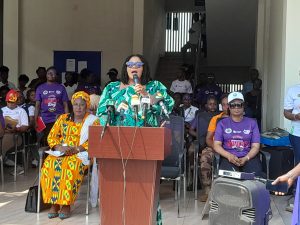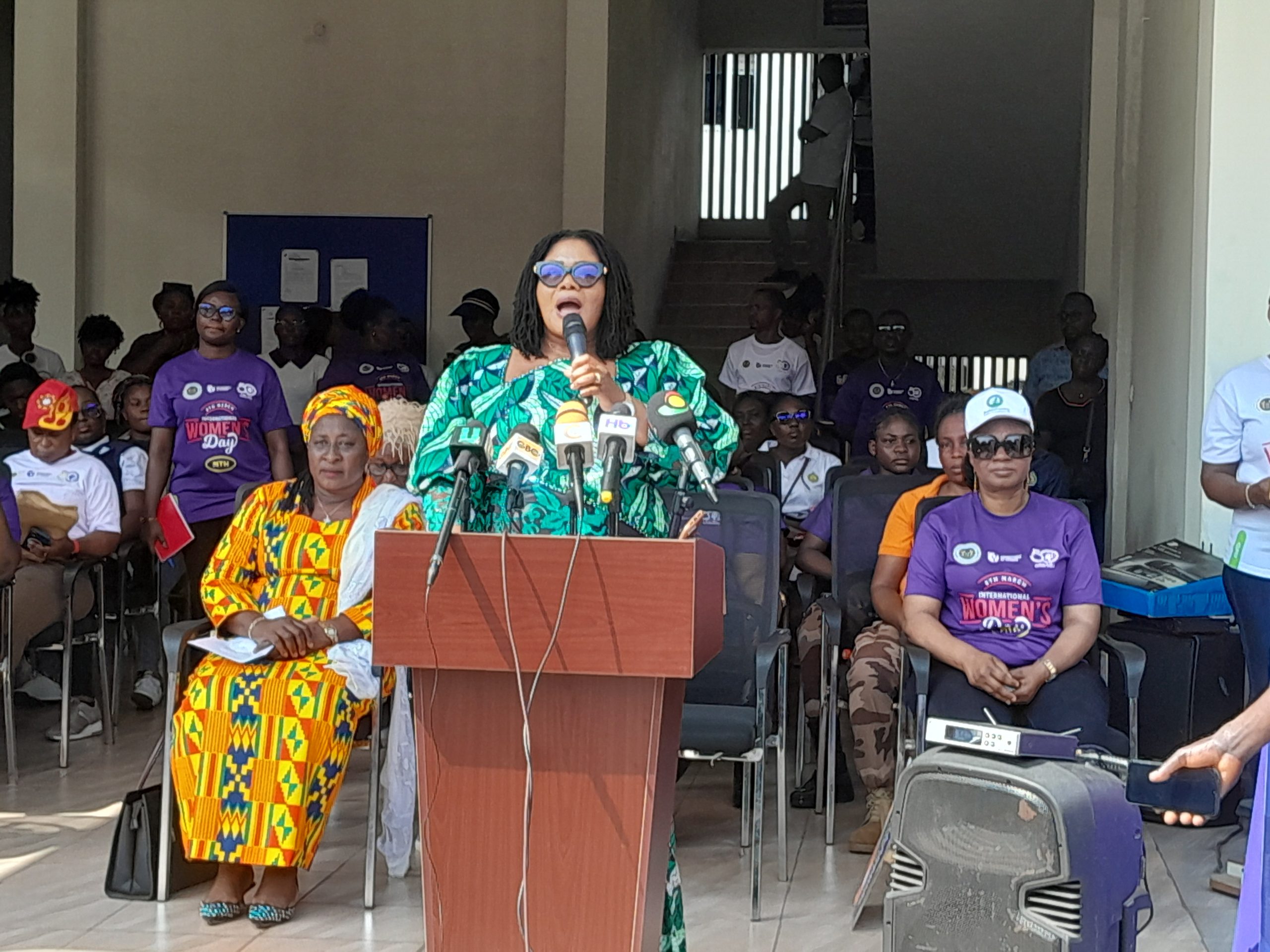
Accra, Ghana//-Ghana’s Minister for Gender, Children and Social Protection, Dr Agnes Naa Momo, revealed that the list of nominees of the Gender Equity Committee has been compiled and forwarded to the Office of the President for review and approval.
The committee, according to her, is to guide and oversee the implementation of key provisions of the Affirmative Action (Gender Equity) Act 2024.
Dr Momo revealed this at the National Dialogue on Implementation of the Gender Equity Act, 2024, held in Accra.
The dialogue was organised by Ghana Center for Democratic Development (CDD-Ghana), in collaboration with the Global Center for Pluralism (GCP) and the Affirmative Action Coalition.
This event marks a pivotal moment following the passage of the Affirmative Action (Gender Equity) Act 2024 in July 2024, a milestone achieved after decades of tireless advocacy by civil society, women’s movements, legislators, and activists.
Dr Momo, whose speech was read for her, emphasised the importance of implementing the new gender law.
She stated: “The passage of the Affirmative Action Act in July 2024 marked a significant moment in Ghana’s quest for inclusive governance, gender equity, and sustainable national development.
This important law aims to ensure that women are progressively represented in key decision-making positions across both the public and private sectors. It targets a minimum of 30% representation by 2026 and ultimately 50% by 2034”.
The Minister used the occasion to express the government’s commitment to supporting the full implementation of key provisions of the gender equity law.
Speaking to journalists later, the Member of Parliament for New Juaben North, Nana Osei-Adjei, stressed the long-overdue nature of the Act and the need for its operationalisation.
“I think that this act as a country is long overdue, and we need to operationalise it. We need that equity in our system.
I think that the number of women we have in our politics and our administrative areas, in our administrative departments, is too low, and we need to push this agenda to the extent that at least when it comes to parliament, we have about 50% representation of women”, he said.
Mr Osei-Adjei further advocated for increased representation of women in politics, administration, and parliament, aiming for at least 50% representation, although the Act says 30%.
As a member of the Gender Committee of Parliament, he pledged his support to push for the realisation of this agenda.
“Just like countries like Rwanda, South Africa, and even Equatorial Guinea, and the rest are doing, Ghana is a beacon of democracy, which most African countries look up to.
Being a member of the Gender Committee, I also add my voice and rally behind our chairman to push this agenda, for it to actualise”, he added.
The dialogue concluded with a collective commitment from all stakeholders to ensure that the Affirmative Action (Gender Equity) Act is fully implemented, fostering an environment where women’s representation in leadership roles becomes a standard rather than an exception.
The collaborative efforts of civil society, government, and the private sectors will be crucial in driving this transformative agenda forward, ultimately fostering a more equitable society for all Ghanaians.
Instructively, the Affirmative Action Gender Equity Bill 2024, a long-standing bill in Ghana’s Parliament, was unanimously passed in July 2024.
This bill aims to boost the representation of women in key governance, public life, and decision-making roles to enhance the lives of women in the country.
The law also encourages addressing gender imbalances in various sectors as per Article 17 of the 1992 Constitution.
The objective is to increase the participation of women to a minimum of 30% by 2030, aligning with the Sustainable Development Goals (SDGs). The Act focuses on promoting gender equality and women’s empowerment by tackling systemic barriers that have hindered women in Ghanaian society.
By Godwin Dzigbanu, African Eye Report


